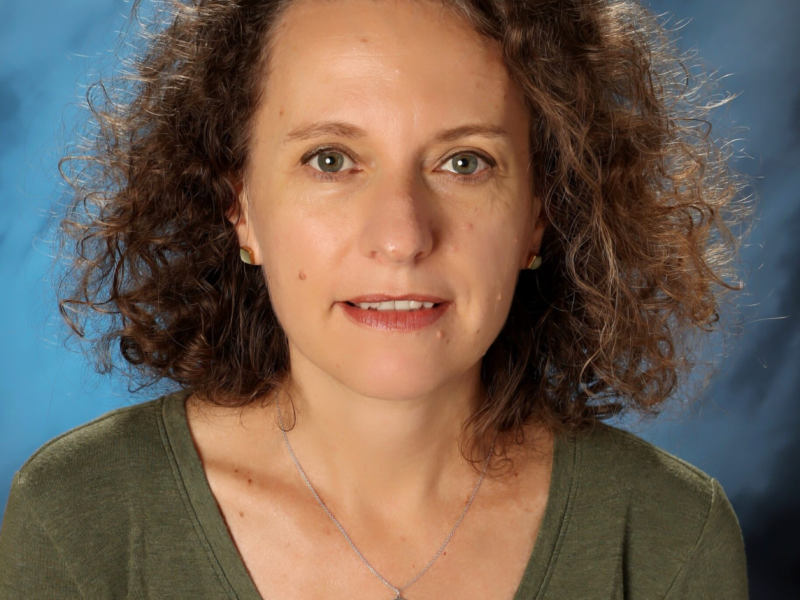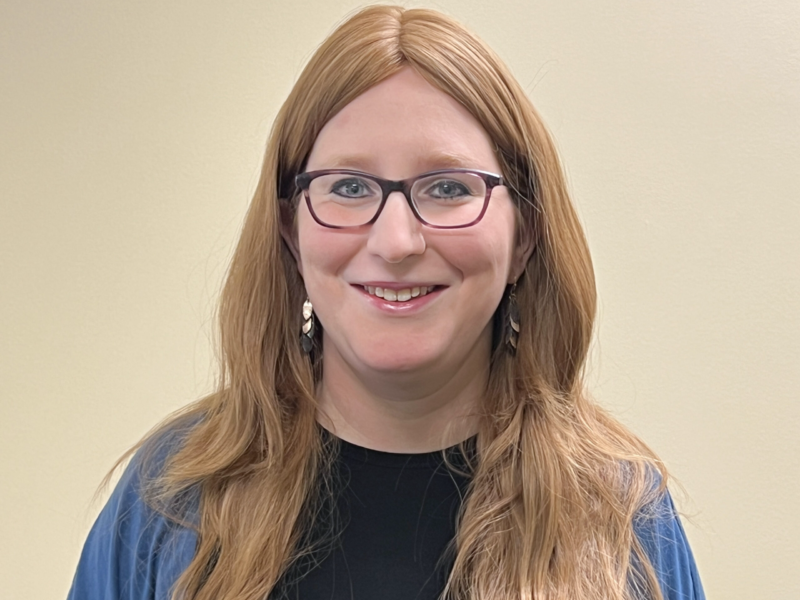Lynda Falkenstein: “Ignorance is definitely not bliss”
In 2000 Dr. Lynda Falkenstein was diagnosed with breast cancer as her mother was dying of ovarian cancer 25 years after she survived breast cancer.
Knowing that a long list of relatives had died from ovarian cancer, Falkenstein says she realized “my cancer could not be random … so, a day after diagnosis, I underwent genetic testing.”
When the geneticist confirmed she had a BRCA1 mutation, Falkenstein immediately opted for a bilateral mastectomy as a prophylactic measure. About a month after her lumpectomy she had the mastectomy, and six weeks later she had an oophorectomy (removal of ovaries).
“Even though I was fully aware that BRCA1 carriers can still get a form of ovarian cancer known as peritoneal carcinoma, getting rid of my ovaries gave me some comfort that I’d done everything I could to reduce my odds of having a BRCA1-related cancer visit me again,” she says.
Falkenstein believes the most important thing she can share with other Jewish women is: “Don’t be afraid. The only thing to be afraid of is not knowing, of being uninformed. Everyone who has a hint of Jewish genealogy in their veins should get tested. This is a subject where ignorance is definitely not bliss.”
Falkenstein says her only regret about her decision to have a double mastectomy and oophorectomy is that she didn’t act “before cancer arrived on my doorstep. From my vantage point, my breasts were simply body parts and I am a lot more than body parts. … I believe that any significant other who is really significant doesn’t love you for your breasts. Real love doesn’t care about scars or nipples. It doesn’t even see them.”
A native New Yorker who came to Portland with her parents as a young child, Falkenstein is adamant that Jewish women should get tested – “Don’t wait. Act now. Get informed.”
“Find out if you are a carrier … whatever you do with the information is your business, but don’t deprive your children of information that can save their lives. … Even if you don’t have children, the people around you – family and friends – are all affected when you have cancer.”
One common concern a decade ago was that insurance companies might deny coverage to women who tested positive for BRCA1/2 mutations on the basis of pre-existing conditions. “There will be really good news on that front because under ACA (Affordable Care Act), no one, regardless of age, will be denied health coverage due to a pre-existing condition,” says Falkenstein.
________________________
Nancy Prouser: “I have yet to regret testing or surgeries”
Nancy Prouser’s mother died of breast cancer when Prouser was just 28. When she was 41, her father developed breast cancer and had a mastectomy. Soon after the discovery of the BRCA1 and BRCA2 genetic mutations in the 1990s, her father tested positive for a mutation common among Ashkenazi Jews that gave them increased risk of breast, ovarian and other cancers.
Prouser, who has a master’s degree in public health, decided not to wait to see if she might develop cancer. When genetic testing revealed she had inherited the mutation, she immediately opted for a prophylactic bilateral mastectomy.
With the testing still new in 1997, she says she felt isolated by her decision.
“When a woman has breast cancer, friends rally to help her; I didn’t have breast cancer, I just had surgery,” she says.
Losing her breasts was traumatic and her friends didn’t understand her decision. Though her husband firmly supported her, she says she waited two years to have her ovaries removed to reduce her risk of ovarian cancer because she couldn’t cope with losing another body part before her breast reconstruction was complete.
Myriad Genetics, which holds the testing patent for BRCA1/2, invited Prouser to speak around the country at a series of programs for health care providers, laboratory workers and lay people. She also helped develop an online support group for women facing similar decisions.
“The genetics counselors in Portland knew about me and used to call when they had patients whom they thought would benefit from talking to me,” Prouser says. “I did talk to anyone who called me. I personally helped two of them through their surgeries and we have remained good friends.”
Prouser’s sister tested negative for the mutation, but Prouser’s daughter tested positive. Because her daughter is still nursing her second child, she plans to deal with the decision later.
Prouser is glad that more information and support are available for her daughter and others with the mutation.
“So much is different now, all these years later,” says Prouser. She believes since studies have shown prophylactic mastectomies and oophorectomies are effective, doctors are more open to discussing the option and people are more supportive of their friends who make that decision.
“I have yet to regret what I did, either getting tested or having the surgeries,” says Prouser, looking back on the past 15 years. “While fearing breast cancer used to take up an inordinate amount of space in my brain, I haven’t thought about it (or my surgery) for years.”
_______________________________
Writing group
by Eve Stern
When I had cancer, my heart was filled with a myriad of emotions but I found that I had difficulty articulating them. I saw that one of the local hospitals had a writing group for women with cancer and decided to give it a try. We were given a prompt and I was amazed at how my hand flew across the page. When I read what I had written, I thought, “Yes! That’s what I’m experiencing! That’s how I feel!” It was incredibly valuable to find this outlet in which to express myself.
When our group disbanded, I went to a seminar in California and received training in how to lead a writing group. I currently lead a group of 12 women who meet weekly.
One participant said, “It’s good to be part of a group with similar health issues. Each week we’re able to go beyond cancer and weave together something entirely new – with each other and with ourselves.”
If you are interested in participating in a writing group for women with cancer, contact eve.stern@gmail.com.
________________________________
Resources and Information
Cancer Genetics Risk Assessment and Genetic Counseling in Oregon
Portland:
• Kaiser Permanente Medical Center (members only):
503-331-6593 or 1-800-813-2000 Ext. 16-6593
• Legacy Cancer Prevention and Risk Assessment Program
503-413-6534 or 1-800-220-4937 Ext. 6534
• Oregon Health Sciences University
503-494-8307 or 1-800-452-3563 Ext. 8307
• Providence Cancer Center
503-215-3175
Springfield:
• Center for Genetics and Maternal-Fetal Medicine
541-349-7600 or 1-800-970-7419
Sharsheret sharsheret.org
National not-for-profit organization supporting young Jewish women and their families facing breast cancer.
Facing our Risk of Cancer (FORCE) www.facingourrisk.org
National nonprofit dedicated to improving the lives of individuals and families affected by hereditary breast and ovarian cancer.
Breast Cancer Answers.com www.BreastCancerAnswers.com/ask
Interactive social media show that enables patients to submit their questions via the dominant eight social networks (including Facebook, YouTube and Twitter) and receive a video response from an expert in the field.
Myriad Labratories, Inc. www.myriadtests.com
This is the website of the diagnostic laboratory providing the genetic test for BRCA 1 and 2. Oregon Genetics Program of the Oregon Health Authority
Bridget Roemmich, MPA, program coordinator, bridget.r.roemmich@state.or.us





